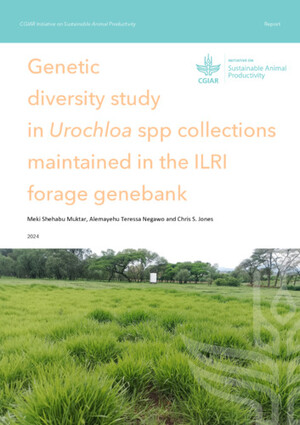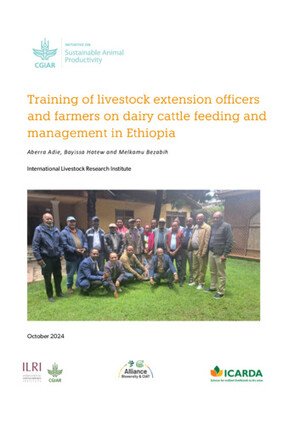
The potential of replacing conventional dairy supplements with forage legume-based diets in Zimbabwe’s smallholder dairy sector
Abstract
The effect of replacing commercial supplements with isoenergetic and isonitrogenous velvet bean-, cowpea and lablab-based supplements on milk yield, milk quality and economic returns in smallholder crossbred dairy cows was investigated in the 2013 and 2014 dry seasons. Using 3 × 3 Latin square designs, nine multiparous Red Dane, Guernsey and Holstein-Friesian crosses in mid-lactation (130 ± 19 d) were offered forage legume-based supplements for 63 d at 0.5 kg per litre of milk produced. Milk quantity and quality were significantly (P < 0.05) different among supplements in both seasons. Cows fed commercial supplements had higher milk yield than cows fed forage legume supplements. Milk fat content was significantly (p < 0.05) higher in cows fed lablab-based supplements than cows fed other supplements. Milk protein, total solids and lactose content of cows fed commercial supplements was significantly (p < 0.05) higher than those fed forage legume-based supplements, although protein content was similar to cows fed lablab-based supplements. Dietary gross margins were higher for cows fed velvet bean and lablab-based supplements by 17% and 16.5%, respectively. Based on supplement, production costs per litre of milk was higher by 28% and 23% using commercial supplements compared to velvet bean and lablab supplements, respectively.
Citation
Gwiriri, L.C., Manyawu, G., Mashanda, P.B., Chakoma, I., Moyo. S., Chakoma, C., Sethaunyane, H., Imbayarwo-Chikosi, V.E., Dube, S. and Maasdorp, B.V. 2016. The potential of replacing conventional dairy supplements with forage legume-based diets in Zimbabwe’s smallholder dairy sector. African Journal of Range and Forage Science 33(3):155-163.










